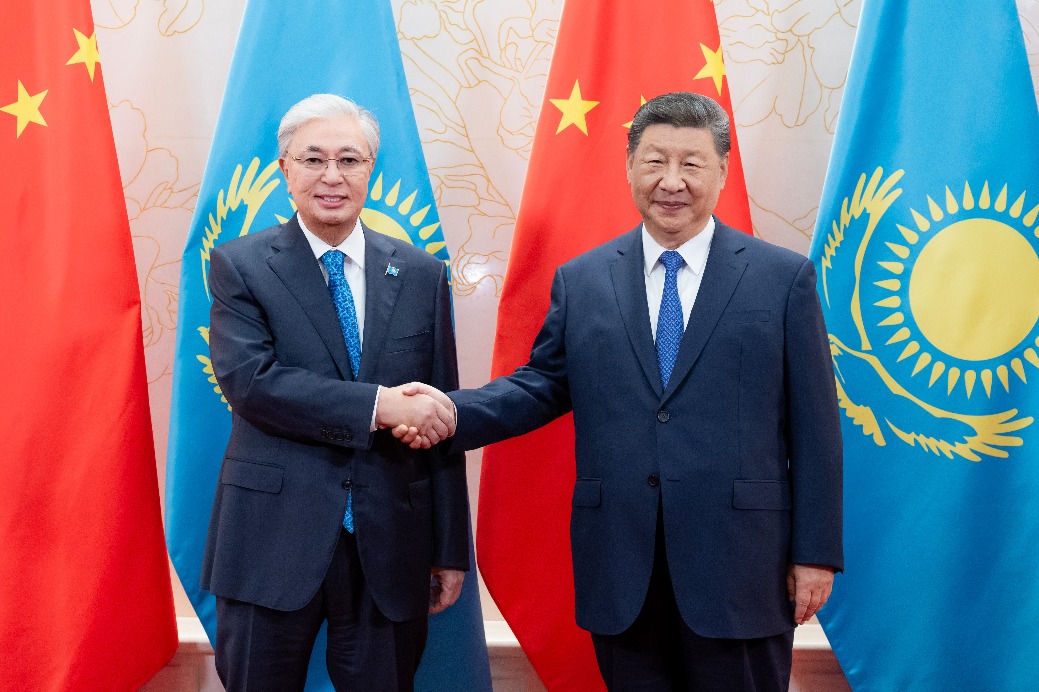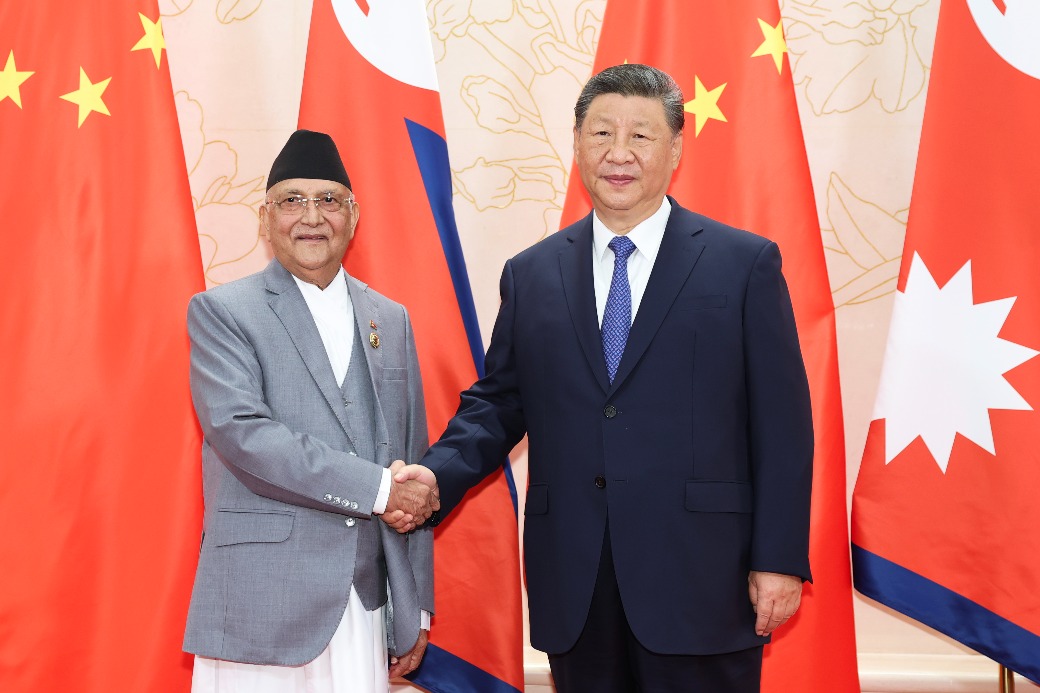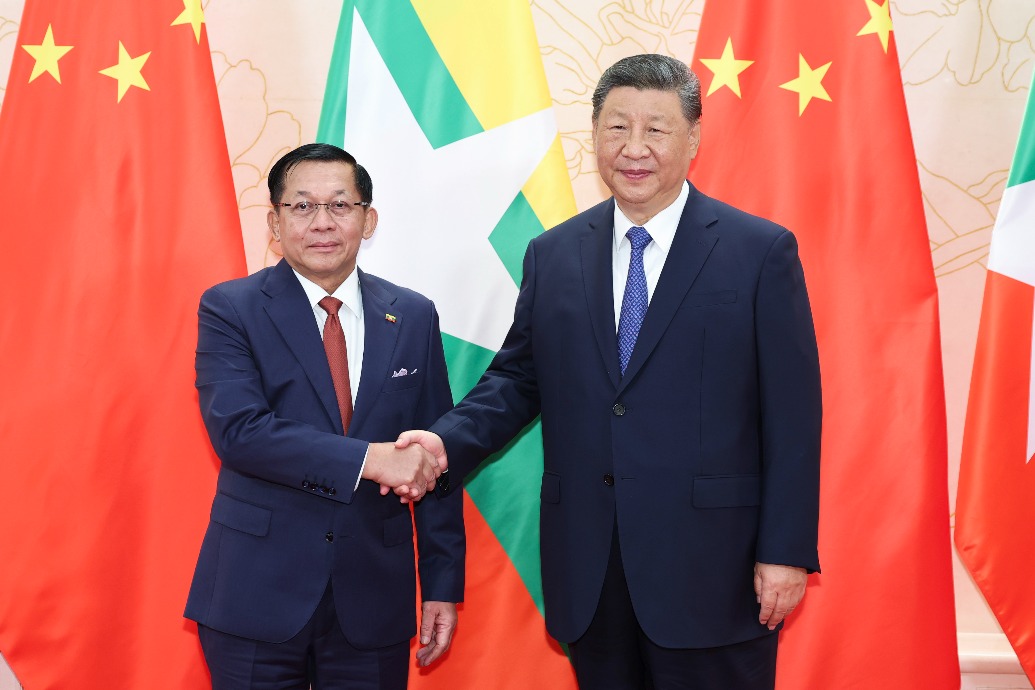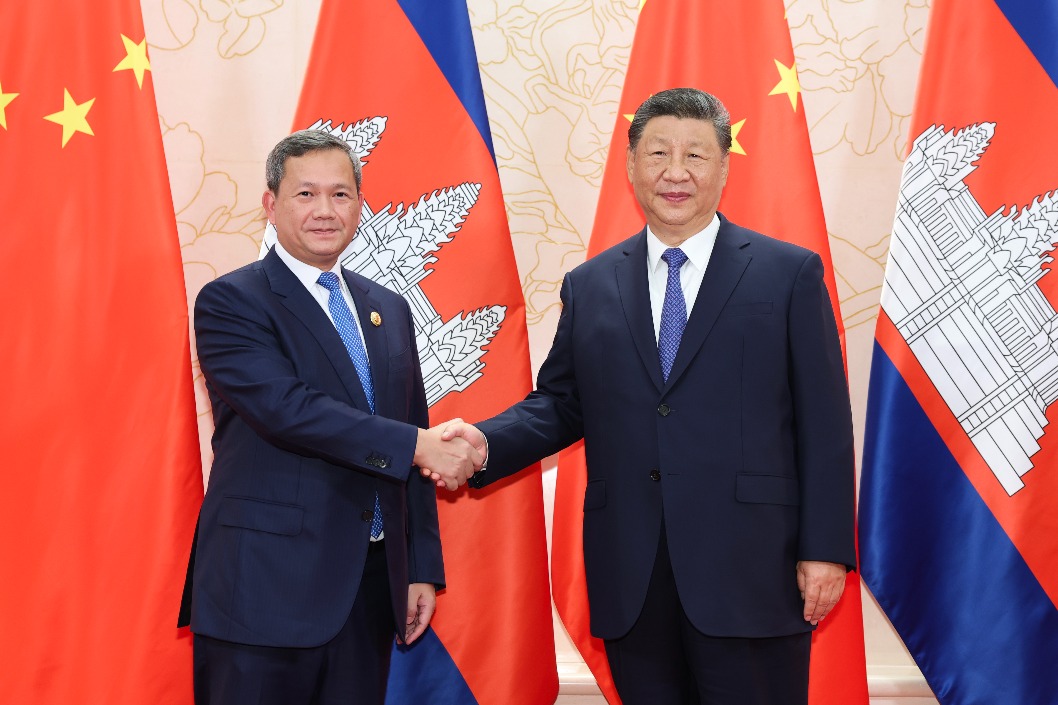Fed stance may roil global financial markets

An earlier-than-expected tightening of monetary conditions in the United States may disrupt global financial markets and increase risks in the second half of the year, experts said on Thursday after the US Federal Reserve released hawkish-sounding statements.
Fed officials signaled that the first rate hike in the US since the COVID-19 pandemic outbreak may happen as early as 2023, an indication that the US central bank is tightening its monetary stance earlier than expected, amid predictions of faster economic growth and sharply higher inflation this year.
The Fed projections were released at the end of a two-day policy meeting on Wednesday. Soon after the meeting, the S&P 500 Index declined by 0.54 percent while a huge sell-off was seen in US government bonds with the yield on five-year Treasurys rising by 0.12 percentage point to 0.895 percent.
Fed Chairman Jerome Powell said after the policy meeting that the "tapering" process, or reducing asset purchases, would be "orderly, methodical and transparent", and any adjustment would be communicated "well in advance".
The Fed's shift toward a more hawkish monetary policy stance also reflects its inflation concerns. The "tapering" may start in the second half, which depends on the US employment performance, and whether the rate hike will happen earlier than what has been decided will depend on the sustainability of inflation in the coming years, said Zhu Jianfang, chief economist with CITIC Securities.
"We should keep an eye on the higher real rates and strengthened US dollar in the second half," said Zhu.
China's Foreign Exchange Self-Disciplinary Mechanism, an organization of the People's Bank of China, the central bank, said on Wednesday that any withdrawal of the quantitative easing could put pressure on the Chinese currency. Other factors that can fuel fluctuations in the foreign exchange market include the bursting of asset bubbles and the return of cross-border capital flows to the US along with rising risk aversion.
The PBOC has already normalized its monetary policy and used conventional policy tools. It is unlikely to adjust benchmark interest rates, neither hikes nor cuts, to deal with the US monetary tightening, but potential risks will be watched, said Freddy Wong, managing director and head of Asia-Pacific of the fixed income department at Invesco, a US investment firm.
The PBOC is expected to maintain a neutral policy stance, while Beijing may rely more on its fiscal policy to prevent economic downward risks in the July-to-December period, experts said.
Lu Ting, chief economist with Nomura, expects the Chinese authorities to speed up government bond issuances and fine-tune credit policies to avoid an economic slowdown, with the year-on-year outstanding total social financing growth subsequently rebounding to above 11 percent thereafter.
US officials, however, consider the sharply rising inflation a reflection of "transitory factors", when economic activity and employment have strengthened amid the progress on vaccinations and strong policy support.
Under the adjusted monetary policy framework, the Federal Open Market Committee "will aim to achieve inflation moderately above 2 percent for some time" with inflation having run persistently below this longer-run goal, according to the meeting statement.
Before achieving the goals of maximum employment and 2 percent inflation in the long run, the Fed has committed to maintain an accommodative monetary policy stance.
The FOMC "would be prepared to adjust the stance of monetary policy as appropriate if risks emerge that could impede the attainment of the Committee's goals", said the statement.
The US Fed had pushed back aggressively on the market's attempt to reprice its path to raise interest rates as mentioned in its latest meeting. Its response, aligned with similar messages from the European Central Bank, the Reserve Bank of Australia, and the Bank of Canada, has made it clear that monetary policy will remain exceptionally accommodative for the foreseeable future, said Wong from Invesco.
"Central banks in developed markets have become more reactive and will likely need to see significantly higher and self-sustaining inflation, especially through wage increases, before tightening financial conditions," said Wong, who expected the overwhelming global monetary and fiscal policy response to the pandemic to continue.
Today's Top News
- How Xi champions Shanghai Spirit to foster new type of international relations
- China improves memorial facilities to mark victory against Japanese aggression
- Xi meets Modi
- Xi meets Kyrgyz president
- Xi meets Belarusian president
- China, Armenia establish strategic partnership






























